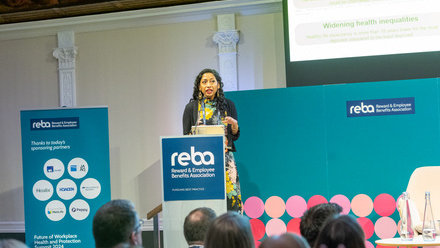Health and wellbeing resolutions are not just for the new year

Think the unthinkable
The pandemic has fundamentally changed the “it won’t happen to me” attitude, as most people have had to face up to the fact that it could. We are thinking the unthinkable – that we could die or be very ill (possibly for a long time). This mindset brings new questions with it – such as “How will my family manage without my salary if I die?”, “Will I still get paid if I’m really ill for a long time?” and “What other help will the business give to me and my family at the worst of times?”.
For a business, the unthinkable questions could be:
- What will happen to the business if we lose a key person?
- Can the business afford to pay out for a death or for long-term sick leave?
- What sort of help should the business provide?
These are questions that employers need to answer, both for their business and their people. If the response to any of these questions is “don’t know” or “nothing” then maybe some alarm bells should ring and it could be time to make some relatively inexpensive changes to the benefits package and/or to the insurance in place to protect the business against financial loss.
Peace of mind is a highly valued commodity during uncertain times, so it makes good sense to generate some for both the business and employees by removing some of the mystery around what is there for when the unthinkable happens.
Let paternalism out of the box
Philanthropist employers such as Rowntree and Cadbury understood a long time ago that happy, healthy, looked-after employees who felt valued were more engaged and productive, which was good for business. And it’s no different today.
Everyone benefits from a supportive and caring employer and the pandemic has brought this home. What’s more, in the current ‘Great Resignation’, workers who have re-evaluated what they want from life and work will be looking for more supportive employers, especially if they haven’t felt well supported during the pandemic.
Some employers may have not fully embraced this before Covid-19, but nearly three quarters of employers (73%) believe the pandemic will mean long-term changes in the way they support the health and wellbeing of staff. Although 14% of employers view this negatively, most (57%) believe this is a positive transformation. Checking in with staff is likely to see the largest increase long term, with 71% of employers believing the pandemic will mean a continued uplift in this more informal way of supporting staff*.
Caring/paternalistic employers have always been in vogue and it’s important that employers today don’t get left behind.
Shout it out – and let people know
If a business is doing good things for its people, the people need to know so they can derive maximum benefit from everything that’s in place. This, in turn, can drive engagement and appreciation, which aids productivity, attraction and retention.
So, if a business delivers on resolutions one and two, the last resolution is imperative for getting over the finishing line for a win-win-win.
For example, group risk benefits have come into their own during the Covid-19 pandemic. Not only in terms of paying out £218.7m in Covid-related death claims during 2020 and the first half of 2021**, but also in terms of the use of the additional help and support that comes along with a group risk policy.
Interactions with embedded services such as an employee assistance programme, HR and line manager advice, online GP services, second medical opinion services and physical and mental health apps increased exponentially during 2020 to a record number of 138,222 interactions (compared with 74,707 interactions during 2019)***.
This provision of remotely accessible support services has been invaluable in helping people during the last couple of years. If workers are pointed in the right direction and communications are little and often, they remember to use such help when they need it. Employers who have done this during the pandemic have been able to position themselves as caring and have delivered on that in the most practical of ways.
* Research by Opinium during January 2021 among 505 HR decision makers and 1,216 employees at UK businesses.
** GRiD interim COVID-19 Claims Survey 2020 and GRiD H1 2021 Covid-19 Claims Survey
*** GRiD 2021 Claims Survey
The author is Katharine Moxham, GRiD.
This article is provided by GRiD.






